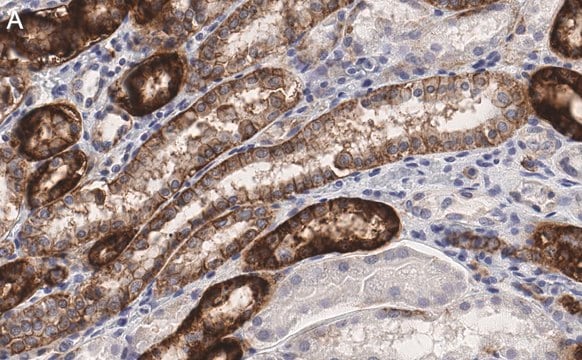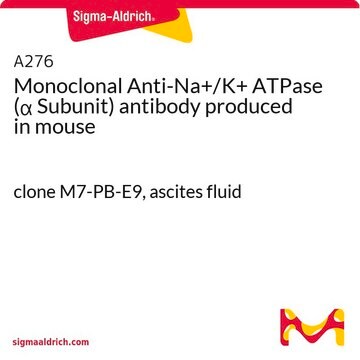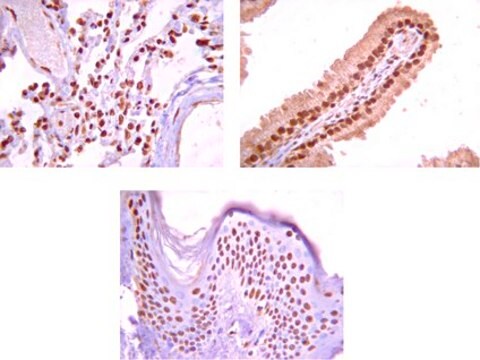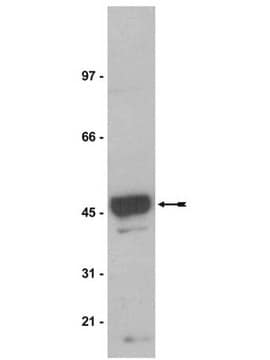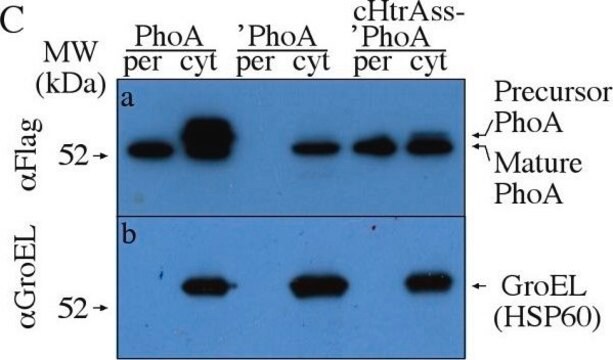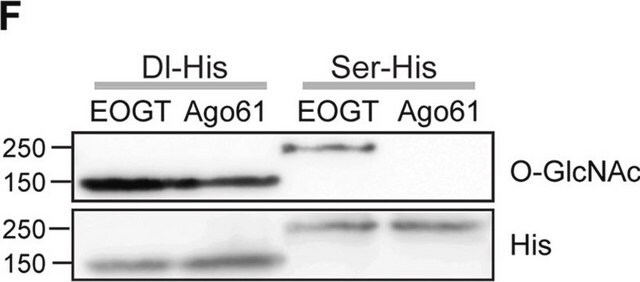ZRB1574
Anti-Na+/K+ ATPase α1 Antibody, clone 2M18 ZooMAb® Rabbit Monoclonal

recombinant, expressed in HEK 293 cells
Synonym(s):
Sodium/potassium-transporting ATPase subunit alpha-1;EC:7.2.2.13;Na(+)/K(+) ATPase alpha-1 subunit;Sodium pump subunit alpha-1
About This Item
ICC
IHC (p)
WB
immunocytochemistry: suitable
immunohistochemistry (formalin-fixed, paraffin-embedded sections): suitable
western blot: suitable
Recommended Products
biological source
rabbit
Quality Level
recombinant
expressed in HEK 293 cells
conjugate
unconjugated
antibody form
purified antibody
antibody product type
primary antibodies
clone
2M18, recombinant monoclonal
description
recombinant, expressed in HEK 293 cells
product line
ZooMAb® learn more
form
lyophilized
mol wt
calculated mol wt 112.90 kDa
observed mol wt ~100 kDa
purified by
using Protein A
species reactivity
human, monkey, mouse
species reactivity (predicted by homology)
bovine
packaging
antibody small pack of 25 μL
greener alternative product characteristics
Waste Prevention
Designing Safer Chemicals
Design for Energy Efficiency
Learn more about the Principles of Green Chemistry.
enhanced validation
recombinant expression
Learn more about Antibody Enhanced Validation
sustainability
Greener Alternative Product
technique(s)
flow cytometry: suitable
immunocytochemistry: suitable
immunohistochemistry (formalin-fixed, paraffin-embedded sections): suitable
western blot: suitable
isotype
IgG
epitope sequence
N-terminal
Protein ID accession no.
UniProt accession no.
greener alternative category
shipped in
ambient
storage temp.
2-8°C
target post-translational modification
unmodified
General description
Specificity
Immunogen
Application
Evaluated by Western Blotting in Cos-7 cell lysate.
Western Blotting Analysis: A 1:1,000 dilution of this antibody detected Na+/K+ ATPase 1 in Cos-7 cell lysate.
Tested applications
Western Blotting Analysis: A 1:1,000 dilution from a representative lot detected Na+/K+ ATPase 1 in lysates from mouse testis tissue.
Flow Cytometry Analysis: 0.1 μg from a representative lot detected Na+/K+ ATPase 1 in one million HeLa cells.
Immunohistochemistry (Paraffin) Analysis: A 1:100 dilution from a representative lot detected Na+/K+ ATPase 1 in human colon tissue sections.
Immunocytochemistry Analysis: A 1:100 dilution from a representative lot detected Na+/K+ ATPase 1 in MCF-7 cells.
Note: Actual optimal working dilutions must be determined by end user as specimens, and experimental conditions may vary with the end user
Target description
Physical form
Reconstitution
Storage and Stability
Legal Information
Disclaimer
Not finding the right product?
Try our Product Selector Tool.
Storage Class Code
13 - Non Combustible Solids
WGK
WGK 1
Flash Point(F)
Not applicable
Flash Point(C)
Not applicable
Choose from one of the most recent versions:
Certificates of Analysis (COA)
Don't see the Right Version?
If you require a particular version, you can look up a specific certificate by the Lot or Batch number.
Already Own This Product?
Find documentation for the products that you have recently purchased in the Document Library.
Our team of scientists has experience in all areas of research including Life Science, Material Science, Chemical Synthesis, Chromatography, Analytical and many others.
Contact Technical Service
